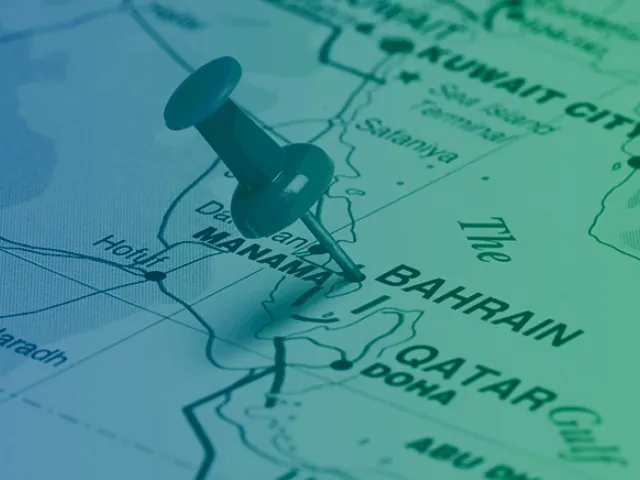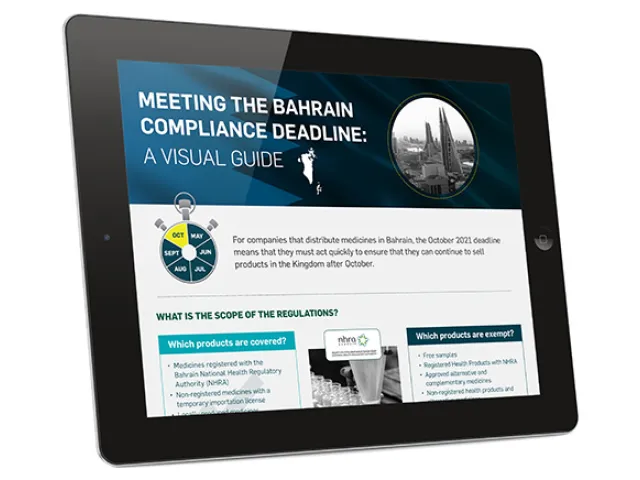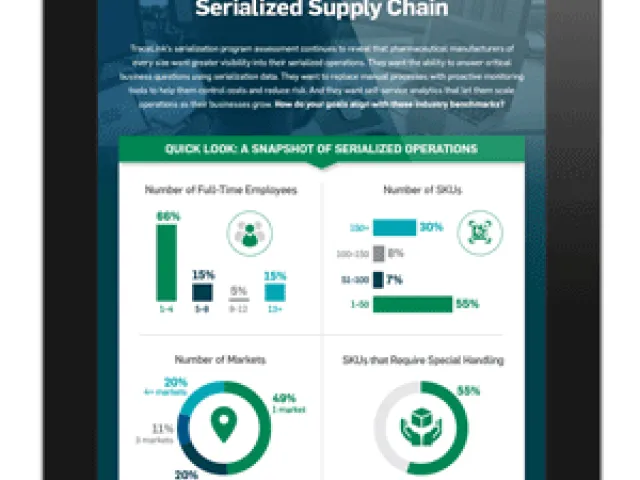Table of contents
For companies that distribute medicines in Bahrain, the October 2021 deadline for Invoicing Companies / Marketing Authorization Holders (MAHs) means that they must act quickly to ensure that they can continue to sell products in the Kingdom after October.
The good news is that the technical requirements follow GS1 encoding standards for serialization and aggregation as well as EPCIS data models and event types. While this provides a solid starting point, it will be critical for companies to review their business and trade partner networks to identify use cases that must be addressed in implementing a Bahrain compliance solution.
Key Bahrain track & trace requirements
The fundamental components of the Bahrain track & trace regulations closely follow those of other countries:
- Application of a GS1-standard barcode to in-scope medicines, including human-readable data elements
- Provisioning and commissioning of a unique serial number at the individual unit of sale level
- Capture and traceability of commissioning, aggregation, and shipping events
- Reporting to the NHRA central system (NHRA-MVC Traceability Hub)
For its initial implementation, Marketing Authorization Holders (MAHs) and Invoicing Companies must register and report in-scope medicines with the Bahrain National Health Regulatory Authority (NHRA). While locally produced medicines are subject to the serialization and reporting requirements, the majority of products governed by the regulations will be:
- Foreign-produced medicines imported as finished goods
- Imported medicines that are sub-packaged locally
- Non-registered medicines with a temporary importation license
It’s important to note that the regulations do not make any provision for allowing a 3rd party entity, such as a 3PL, to file reports with the MVC Hub on behalf of an MAH. If the MAH is the Invoicing Company, they are required to report.
Dates and milestones for Bahrain compliance
Bahrain track & trace regulations were signed into law in November 2017, triggering a series of milestones that will culminate in October 2021, when enforcement will officially begin:
- April 2018 Product master data reported to GS1 UAE BrandSync portal
- December 2019 Barcoding and serialization
- January 2021 MAH registered with the MVC Hub
- October 2021 MAHs certified and reporting shipment information to the MVC Hub.
- May 2022 Aggregation becomes mandatory
The handling of automated shipment voids, returns, and other exceptions involving third parties and in-country partners are expected to be addressed in future guidance from the NHRA.
Product aggregation requirements in Bahrain
Product aggregation will be optional in Bahrain until May 2022, when it will be an enforced requirement. End-state aggregation at time of shipment is expected:
- Only packing events are reportable.
- Intermediate operational events in the warehouse are NOT reportable.
- Unpacking events are NOT reportable.
NHRA requirements for aggregating products follow GS1-standard serialized shipping container coding (SSCC) configurations with a maximum of 5 levels.
With TraceLink, you’re “solution ready” for Bahrain compliance
As with other markets that rely on imported medicines and local supply chains, the transfer of ownership, reporting responsibilities, and CMO and 3PL data exchange will require careful choreography between your serialization and compliance operations. Adding a Bahrain compliance module to your existing TraceLink solution simplifies—and shortens—the path to meeting this important market mandate.
Join the Bahrain Special Interest Group
On May 6, our TraceLink Community team will be launching a Bahrain Special Interest Group (SIG) for TraceLink customers to discuss preparations for the upcoming October deadline. To register, visit the TraceLink communication preference center:
- Select “Join the TraceLink Community” checkbox
- Once the new options appear, select the “Bahrain” check box
- Scroll to the bottom of the page and select the “Update Communication Preference” box to submit your request









